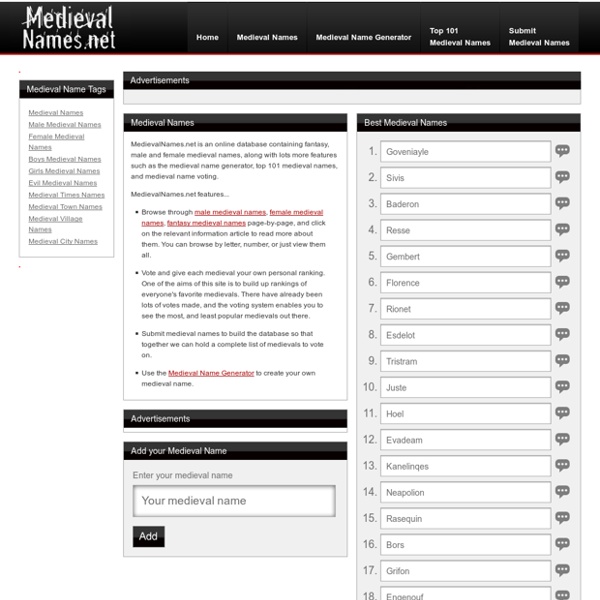



5 Tips on How to Write From the Opposite Gender | Miss Literati Do you have male characters in your novel? Do you find it hard to really connect with them? They play video games, go outside, do sports, eat constantly, sleep all the time, and are major pranksters! Except not every guy is like that, just like not every girl likes dressing up, going shopping, doing her hair, and reading the latest teen magazine.
Character Flaw Index To make characters realistic and relatable they are given flaws, because if there is anything a writer can be sure of it is that no one in their audience will be perfect. Flaws are character traits that have a negative impact in the narrative, unless they are simply informed. They can also be exploited. See Good Flaws, Bad Flaws for a scale of flaw acceptability. Compare Seven Deadly Sins, Ego Tropes. 6 Ways to Make Sure Your Reader’s Brain Syncs with Your Protagonist’s Brain photo by Andres Musta via Flickr Because here’s the thing: it’s not fiction. It’s fact. Except, you know, for the Vulcan part. And, okay, the part where you have to put your fingertips on the other guy’s face to do it. But hey, the world was pretty much analog back then, so who could blame Wincelberg for seeing life as hands-on, and thus missing the nuances of how information is actually transferred from one brain to another?
Physical Descriptions - List of Hair Colors Hair Color List (Note: an updated and expanded version of this list appears in my 15K-word book How to Describe Hair and Skin. See below.) [First, my profound apologies to the vast majority of readers who don't steal content, but I have to state the following. This article and all content on this website belongs to Val Kovalin, copyright © Obsidianbookshelf.com, except where noted. The Inner Struggle: Guides for Using Inner Conflict That Make Sense By Janice Hardy, @Janice_Hardy I sat in on an amazing workshop while I was at RWA that made something typically vague very clear and applicable. Michael Hague's Using Inner Conflict to Create Powerful Love Stories. It was one of those workshops that discussed what I already knew, but Hague presented it in such a way that I clearly saw a super easy way to apply inner journeys to my stories. While the workshop was about romance specifically, the pieces of Hague’s inner conflict really work for any character journey. He calls the overall arc the “journey from living in fear to living courageously.”
Online Book Writing Tools Spinner of Yarns, Weaver of Wonders and our Guide to the imaginary realms and vibrant characters of your stories. Welcome to World Anvil! We're absolutely thrilled to meet you! We'll provide you with all the writing tools you’ll need! Character and Characterisation in the Novel Our Quick Guide to writing convincing characters Building Character Characterisation - the task of building characters - isn't easy. Plotto: The Master Book of All Plots by Michelle Legro The art of mechanized storytelling, or what a cardboard robot has to do with melodrama and Law & Order. You are an author about write a story.